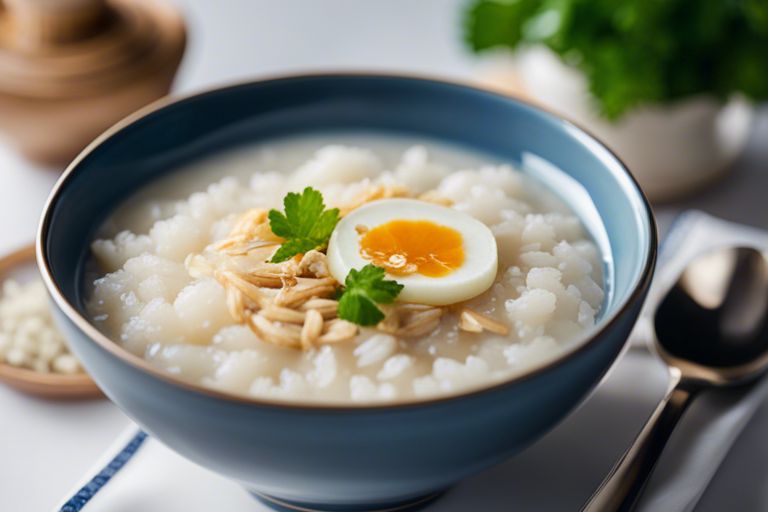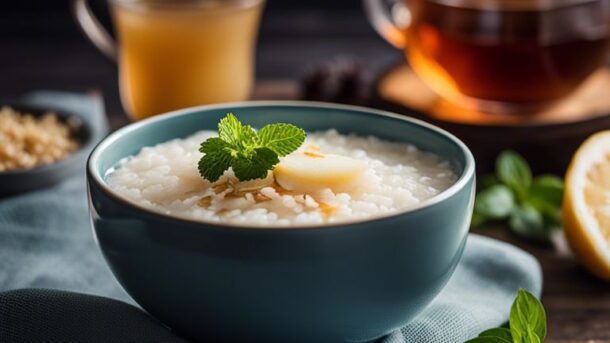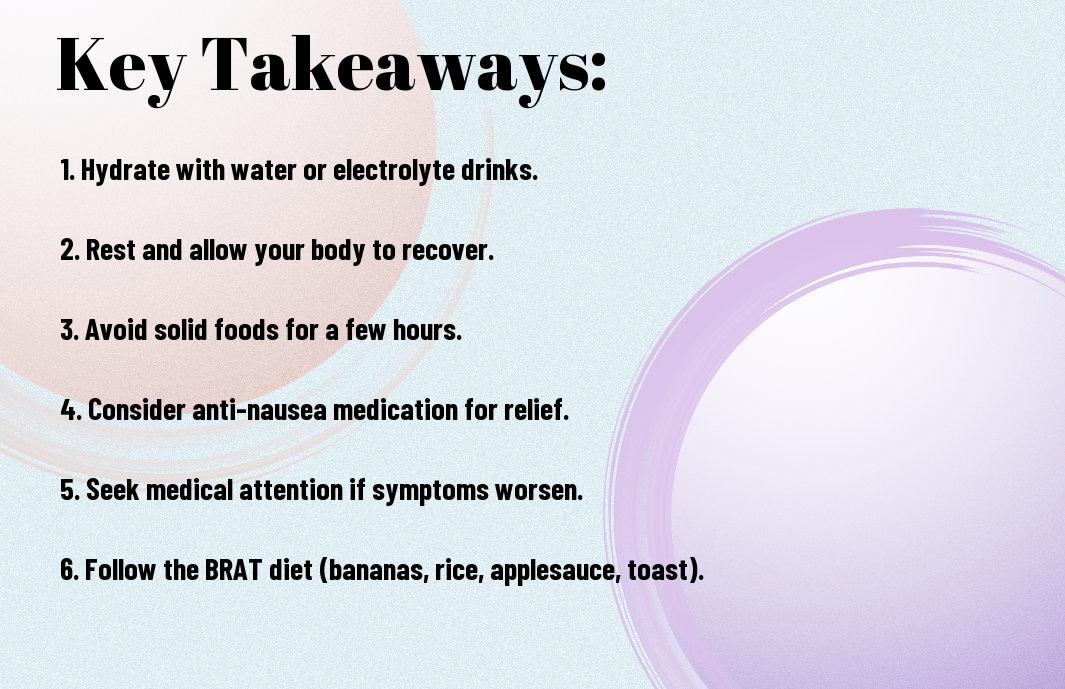You’ve experienced the uncomfortable symptoms of food poisoning, but now it’s time to focus on recovery. In the matter of replenishing your body after a bout of food poisoning, certain foods can help soothe your stomach and restore crucial nutrients. In this article, you’ll learn about the best foods to eat after food poisoning to aid in your recovery process and get you back to feeling your best.

Key Takeaways:
- Stay Hydrated: Drink plenty of water and clear fluids to prevent dehydration caused by diarrhea and vomiting.
- BRAT Diet: Stick to bland foods like bananas, rice, applesauce, and toast to ease digestion and provide necessary nutrients.
- Avoid Irritating Foods: Steer clear of spicy, greasy, or fatty foods that could further upset your stomach while it is still recovering.
Causes of Food Poisoning
Before we investigate into what you should eat after experiencing food poisoning, it’s vital to understand the common causes of this unpleasant condition. Food poisoning can be caused by bacterial contamination, viral infections, and parasitic infestations.
Bacterial Contamination
Food contaminated with harmful bacteria such as Salmonella, E. coli, and Listeria can cause food poisoning. These bacteria can multiply quickly in food left at unsafe temperatures or prepared in unhygienic conditions. Symptoms of bacterial food poisoning typically include nausea, vomiting, diarrhea, and stomach cramps.
Viral Infections
With viral infections like norovirus and rotavirus, food poisoning can occur when you consume food or water contaminated with the virus. These viruses spread easily and can cause gastroenteritis, leading to symptoms like diarrhea, vomiting, and stomach pain.
Contamination of food by infected food handlers or inadequate food hygiene practices in food preparation can lead to viral food poisoning. It’s crucial to practice good food hygiene to prevent the spread of viruses that cause food poisoning.
Parasitic Infestations
To prevent parasitic infestations like Giardia and Cryptosporidium, avoid consuming contaminated water or food. These parasites can cause severe gastrointestinal symptoms like diarrhea, stomach cramps, and fatigue. It’s important to ensure proper sanitation and water purification to reduce the risk of parasitic food poisoning.
Causes of food poisoning can vary, but maintaining good food hygiene practices and choosing foods from reputable sources can help reduce your risk of experiencing this unpleasant condition.
Symptoms of Food Poisoning
Mild Symptoms
Any bout of food poisoning can leave you feeling miserable. Mild symptoms may include nausea, vomiting, stomach cramps, diarrhea, and a general feeling of weakness or fatigue. In most cases, these symptoms will resolve on their own within a few days without any specific treatment.
Severe Symptoms
Poisoning from contaminated food can lead to more severe symptoms such as high fever, severe dehydration, bloody stools, and persistent vomiting. If you experience these symptoms, it’s vital to seek medical attention immediately to prevent further complications.
A severe case of food poisoning can be dangerous, especially for vulnerable populations such as young children, elderly individuals, and those with weakened immune systems. Prompt medical treatment can help prevent serious complications and ensure a speedier recovery.
Long-term Effects
Severe food poisoning can sometimes have long-term effects on your health. In some cases, you may experience ongoing digestive issues such as irritable bowel syndrome (IBS), food intolerances, or changes in your gut bacteria. These effects can persist long after the initial bout of food poisoning has resolved.
It’s vital to pay attention to your body and follow up with your healthcare provider if you notice any lingering symptoms after a case of food poisoning. They can help you manage any long-term effects and ensure that you get the right treatment to support your recovery.

Hydration is Key
Importance of Fluid Intake
To recover from food poisoning, your body needs adequate hydration. When you are experiencing symptoms like diarrhea and vomiting, your body loses a significant amount of fluids, leading to dehydration. Replenishing these lost fluids is crucial for your body to function properly and aid in the recovery process.
Electrolyte Balance
An crucial aspect of hydration after food poisoning is maintaining the balance of electrolytes in your body. Electrolytes like sodium, potassium, and chloride are vital for various bodily functions, including muscle contractions and nerve impulses. When you lose fluids through vomiting and diarrhea, you also lose electrolytes, which can lead to imbalances and further complications.
Balance your electrolytes by consuming electrolyte-rich fluids like coconut water or sports drinks. These beverages not only provide hydration but also replenish the electrolytes lost during illness, helping you recover more effectively.
Herbal Teas and Broths
To soothe your stomach and provide additional hydration, herbal teas and broths are excellent choices after food poisoning. Herbal teas like ginger or peppermint can help ease digestive discomfort and reduce nausea. Broths, such as chicken or vegetable broth, are easy to digest and provide crucial nutrients to support your recovery.
Broths are particularly beneficial as they are gentle on the stomach and can help you stay hydrated while providing some much-needed nourishment. Additionally, the warmth of teas and broths can be comforting and help relax your digestive system during this time of recovery.
Bland Foods for Recovery
Keep your meals simple and gentle on your stomach as you recover from food poisoning. Bland foods can help ease symptoms and provide your body with easy-to-digest nutrients.
Bananas and Rice
Bananas are easy on the stomach and provide vital nutrients like potassium. Pair them with plain white rice, which is gentle on digestion and helps bulk up stool to ease diarrhea. This combination can help replenish lost nutrients and settle your stomach.
Applesauce and Toast
With applesauce and toast, you get a combination of soluble fiber from the apples and easy-to-digest carbohydrates from the toast. The mild flavors are gentle on your stomach and can provide you with some energy to aid in your recovery.
Plain Crackers and Ginger
Ginger has natural properties that can help ease nausea and settle your stomach. Pairing it with plain crackers provides a bland but effective option for settling your stomach. The crackers can also help absorb excess stomach acid, further aiding in your recovery.
Bland foods are your best bet when recovering from food poisoning. They are easy to digest and do not irritate your stomach, allowing your body to focus on healing. Remember to stay hydrated and gradually reintroduce more solid foods as you start feeling better.
Easy-to-Digest Foods
Not all foods are equal when it comes to recovering from food poisoning. After a bout of stomach upset, it’s important to choose easy-to-digest foods that will not further irritate your digestive system. Here are some gentle options to consider:
Chicken Soup
To soothe your stomach and provide hydration, opt for warm and comforting chicken soup. The broth is easy on your digestive system, while the chicken provides a gentle source of protein. The vegetables in the soup offer some nutrients without overwhelming your stomach, making it a perfect choice for recovering from food poisoning.
Boiled Vegetables
Any boiled vegetables can be a great addition to your diet post-food poisoning. Cooking vegetables until they are soft and easily mashable makes them easier for your body to break down and absorb nutrients from. Boiled vegetables also provide important vitamins and minerals that can support your recovery.
Another benefit of boiled vegetables is that they retain more water, which can contribute to your overall hydration levels. This is especially important after experiencing food poisoning, as dehydration can be a common side effect of vomiting and diarrhea. So, make sure to include plenty of boiled vegetables in your meals to help replenish your body’s fluid levels.
Lean Protein Sources
One way to rebuild your strength after food poisoning is by incorporating lean protein sources into your diet. Options such as grilled chicken, turkey, or fish can provide the necessary protein your body needs for healing without putting excess strain on your digestive system. These lean protein sources are easier to digest compared to heavier meats like beef or pork, making them a smart choice for your recovery.
Understanding the importance of including protein in your recovery diet is crucial for repairing any damage caused by the food poisoning. Protein plays a key role in building and repairing tissues, which can help you bounce back quicker from the illness. So, be sure to incorporate lean protein sources into your meals to support your body’s recovery process.
Foods to Avoid
Once again, if you are recovering from food poisoning, it’s important to be mindful of what you eat to aid your recovery process. For a comprehensive guide on what foods to avoid during this time, you can refer to What to Eat After Food Poisoning – Healthline.
Spicy and Fatty Foods
Any spicy and fatty foods should be avoided after a bout of food poisoning. These types of foods can irritate your stomach and digestive system, potentially causing discomfort and prolonging your recovery. It’s best to stick to bland, easily digestible foods until your stomach is back to normal.
High-Fiber Foods
Avoid high-fiber foods such as whole grains, seeds, and raw vegetables in the initial stages of recovering from food poisoning. While fiber is important for your overall health, these foods can be harder for your system to digest when it’s already sensitive from being ill. Opt for low-fiber options like white bread, plain rice, and cooked vegetables until you feel better.
Fatty
Dairy Products
An important group of foods to steer clear of after food poisoning are dairy products. Your body may have difficulty digesting lactose, the sugar found in dairy, after being ill. This can lead to bloating, gas, and discomfort. It’s recommended to avoid milk, cheese, yogurt, and other dairy products until your stomach has fully recovered.
Foods.
To wrap up
Now that you know what to eat after food poisoning, remember to stick to bland and easily digestible foods like bananas, rice, applesauce, and toast. Avoid foods that are spicy, greasy, or high in fiber, as they can irritate your stomach further. Make sure to stay hydrated with water, clear broth, or electrolyte-rich drinks to replenish lost fluids. If your symptoms persist or worsen, consult a medical professional for further advice and treatment.
FAQ
Q: What are good foods to eat after food poisoning?
A: After food poisoning, it is important to stick to bland and easily digestible foods. Some good options include plain toast, crackers, boiled potatoes, plain rice, and boiled or steamed vegetables.
Q: How long should I wait before eating solid foods after food poisoning?
A: It is recommended to wait until you have fully recovered and your stomach feels ready to handle solid foods again. This typically takes about 24-48 hours after the symptoms of food poisoning have subsided.
Q: Are there any foods to avoid after food poisoning?
A: Yes, it is best to avoid spicy, greasy, fatty, and dairy-rich foods immediately after food poisoning. These can be harder to digest and may irritate your stomach, prolonging your recovery. It’s also important to avoid raw or undercooked foods to prevent any further contamination.




